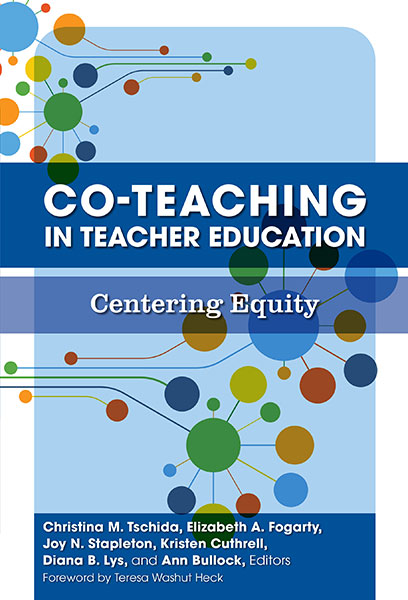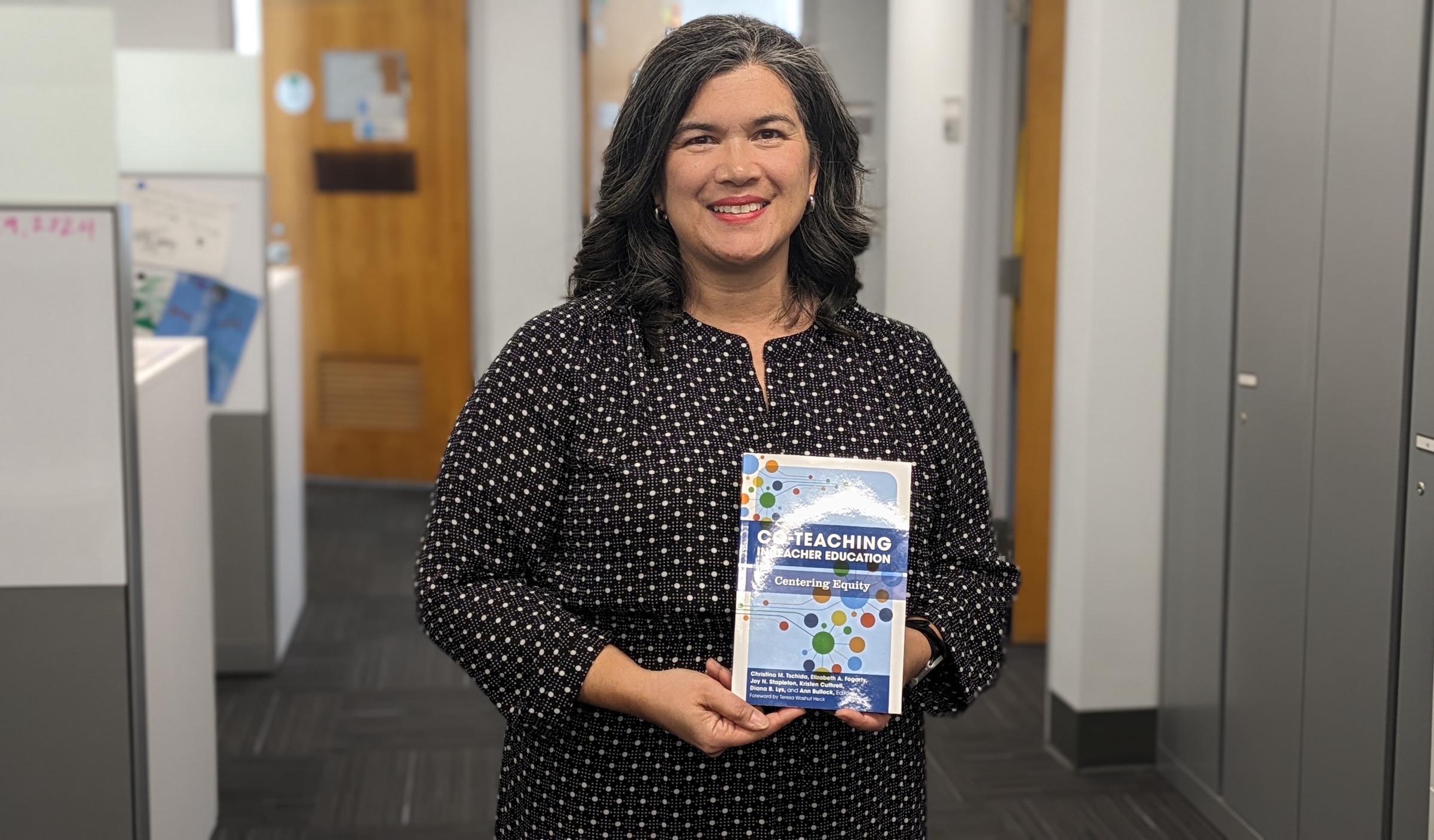Diana Lys, Ed.D., assistant dean for educator preparation and accreditation at the UNC School of Education, is co-editor of a new comprehensive book titled “Co-Teaching in Teacher Education: Centering Equity.” The book explores the innovative utilization of the co-teaching model within teacher preparation programs, emphasizing its transformative impact on the clinical experience for aspiring teachers, and shares factors that contribute to the advancement of teacher preparation.
Having earned her B.A., M.A.T., and Ed.D. from the University of North Carolina at Chapel Hill, Lys began her career in education as a middle school teacher in rural North Carolina, focusing on migrant youth and linguistically diverse students. Now, she leads the School’s initiatives related to educator preparation, program assessment, and accreditation. Lys co-founded also Pathway to Practice NC — a collaborative effort between the School and the NC State College of Education that draws upon the expertise of leading scholars and effective educators to deliver the highest quality online, competency-based education to residency license teachers.
The book also amplifies the commitment to establishing just practices through an equity-based lens to analyze the advantages of co-teaching for both teacher educators and practicing teachers, and illustrates the application of co-teaching to enhance instruction across K-12 and higher education settings.
Through the blending of research and practitioner perspectives, Lys, along with each co-editor and author, champions co-teaching as a pragmatic and invaluable framework. This approach not only provides support for teacher candidates but also nurtures their growth as educators.
“With this volume, our editorial team sought to accomplish two goals: to elevate co-teaching models from merely clinical practice approaches to being vehicles for developing equity lenses for educators at all levels, and to share the joys and challenges we experience in this work with others.”
The book also examines co-teaching in diverse contexts — including traditional, alternative, online, rural, and urban programs — to enhance student learning across settings.

Additionally, the authors provide an equity checklist, a tool offering educators a systematic approach to examine equity considerations throughout the entire co-teaching cycle — from co-planning and co-instruction to co-assessment and co-reflection.
“The Equity Checklist is a valuable tool for all teacher educators considering implementing or refining their co-teaching models with an eye toward equity,” Lys said. “The Checklist helps to ensure that voices and perspectives are heard and valued.”
“Co-Teaching in Teacher Education: Centering Equity” is one of the first to focus on equity in co-teaching research and practice for educator preparation. The authors integrate tangible, research-based suggestions into their work, underscoring that collaboration is key to preparing high-quality teachers who can support diverse students and commit long-term to the field. With its emphasis on embracing co-teaching to transform teacher training, this resource aims to help educators adopt this framework.
“This volume captures the many ways co-teaching is more than a clinical practice model,” Lys said. “When thoughtfully and intentionally implemented, it has the power to disrupt traditional paradigms and center equity in teacher education.”
To learn more about the book, visit Teachers College Press.
